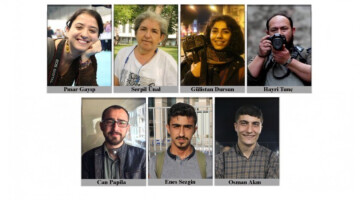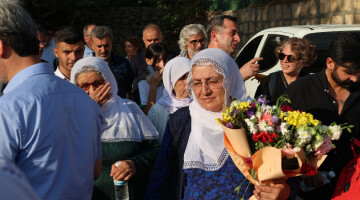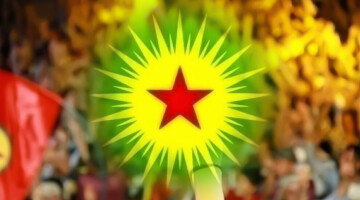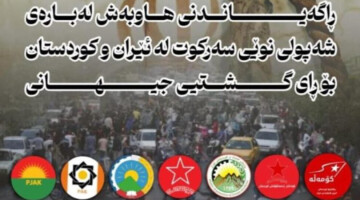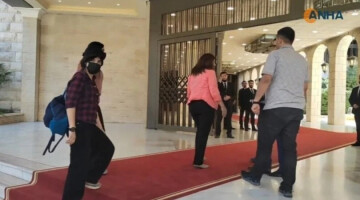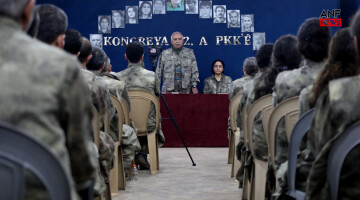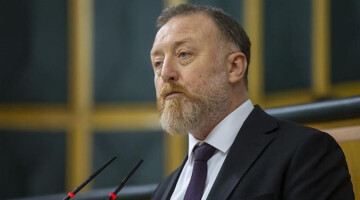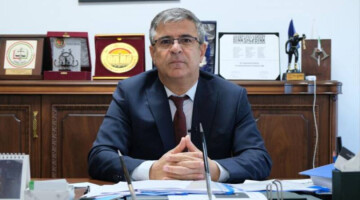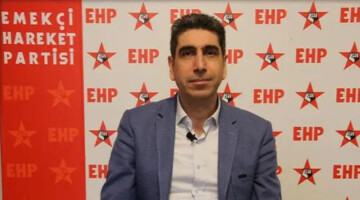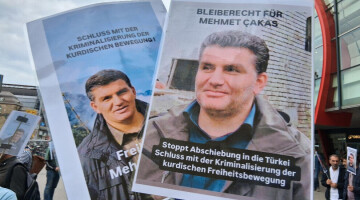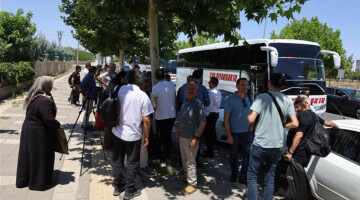
The persons seen on the photo above are the top superiors of the Turkish military. Generals are lined up, listening to Chief of General Staff Hulusi Akar standing next to them.
Place is the Şırnak city in Turkey Kurdistan. Date; 19 December 2015.
Two maps are seen hanged on a wall of the hall where their meeting takes place.
One of these maps is of Cizre, and the other of Silopi.
To avoid misunderstanding; Cizre and Silopi are not located in Syria or Iraq. Both are towns of Şırnak city within Turkey's borders.
Top superior commanders of the Turkish military, the third largest army of NATO with a million personnel, are discussing on how to conquer these two small towns.
Silopi town has a 121 thousand population. In the municipal elections of 2014, Kurdish party DBP (Party of Democratic Regions) won the municipality by receiving the 78 % of the votes. The co-chair system in Kurdish organisations is also implemented at municipalities. Yet, both of the co-mayors and many of the municipal council are currently under arrest. In the most recent general elections of 1 November in Turkey, HDP received 89 % of the votes in the town. The rest belongs to public servants and police officers serving there.
Almost the same figures also go for Cizre which furthermore has a historical importance for Kurds for housing the development of Kurdish literature and art. The great Kurdish epic of Mem u Zin takes place in Cizre, a region called Cizira Botan by Kurds. Botan is the most rebellious and most pro-Kurdish region of Kurdistan that never surrenders. It is the geography where the war is occurring most intensely right now.
In Cizre, HDP received 82 % of the votes in the municipal elections in 2014, and this rate rose up to 93 % on 1 November 2015. One of the two co-mayors is now jailed, and the other discharged from position.
It is in these two towns where the Kurdish struggle is so effective that tens of thousands of soldiers, 8 generals and a number of top commanders have started a war. Houses and neighborhoods of Kurds are being bombed.
Of course, clashes are not occurring in these two towns alone. 12 cities and districts are witnessing an intense fighting at present, one of which is Diyarbakır, the biggest city of Kurdistan. Its central Sur district is now devastated just like the Hama and Aleppo cities of Syria. As is seen on the photo, tanks have been deployed in cities and are bombing houses. This area is on UNESCO's World Heritage List, but is unfortunately ruined entirely by now.

Well, why are all these happening?
Turkish state officials say they have started an operation to remove the trenches dug and barricades built by PKK-affiliated youths in cities. Kurdish officials, on the other hand, say the state is attacking people blatantly, wants to arrest them, in the face of which youths have built up these barricades to protect themselves. While the state says this war has started due to trenches, HDP co-chair Selahattin Demirtaş says trenches and barricades are a consequence of the war started by the state.
However, Turkish Prime Minister Ahmet Davutoğlu let it out on 20 December that preparations for these 12 towns, where a battle is taking place now, have been going on as of the year of 2013. This remark makes it clear that the state wants to besiege these areas where the Kurdish movement remains strong, in response to which Kurdish youths are waging defense. Although unintentionally, Davutoğlu has thus approved the assertions voiced by the Kurdish side.
As talks in İmralı continued, not many expected this much escalation of the conflict rather than peace and resolution. However, the table of resolution fell down after the collapse of Turkey's anti-Kurdish policy in Rojava and Syria. What the AKP expected from a resolution was an unconditional disarmament of the PKK, which on the other hand expected a recognition of the Kurdish identity and discussion of the disarmament issue later on.
Expectation of none has come true, and arms started to speak, and quite relentlessly.
Upon the eruption of the conflict did we came to know that the state had made a huge preparation, as special teams and snipers have been sent to the region and started to attack the people. There is no state in these 12 towns at the moment. Hundreds of thousands living in these are supporting those who are resisting behind barricades. No wonder elderly, children, those with illness and physical problems have taken shelter in cities outside the conflict area. Yet, countless people still remain in their streets.
Besides the areas of conflict, other places are also witnessing a mobility now as the Kurdish question has reached a very critical crossroads. Kurds want either a resolution and recognition of their rights, or a total annihilation if could be dared. This is the mood dominating over Kurdish streets now. And of course, many Kurdish citizens do not want to live within 'Turkey's integrity' anymore, nor do they believe they can be brothers and sisters with Turks. Kurds have not been at peace with the state anyway. Besides, they are also angry with the Turks in Istanbul, Ankara and İzmir who remain silent on the atrocity of the state. Their heart is broken and they are giving a struggle for self-determination.
The first question raised by the current state of affairs; what will happen then?
In plain words, nobody knows that. Yet, one doesn't need to be wise to know that the war will become more intense. The state vows to kill them one by one, and Kurds say they will never surrender.

Special operation teams deployed in schools say 'It is our turn for a lesson'. As is seen on the photo, one of these gives a sign of death and says 'we will give you a lesson'.
This photo was taken on 18 December when women and children were killed once again like all the other days. Dead bodies of some 15 people in Silopi cannot be taken to a morgue even, let alone be buried.
This photo shows a family sitting home near the dead body of a slain child of theirs.

The eldest person killed in Silopi is 80-year-old Yusuf Aybi who was murdered by police for appearing outside of his house.
The youngest victim of these attacks is an unborn baby.
30-year-old Güler Yanalak was shot by Turkish police in Cizre. She was two months pregnant. She survived the attack with wounds but her unborn baby couldn't be saved.

According to the figures compiled by HDP, 54 children have been killed by state forces in recent months.
And media.
At the age of 11 in 1991, me and my family went to Diyarbakır's Kulp district to retrieve the body of a relative killed in a clash. Families of 13 guerrillas and thousands of people were also there. The bodies weren't handed over to families. Furthermore, state forces fired on the mass and murdered 7 civilians. My elder brother survived the attack only by remaining under the bodies of casualties. His jacket was all covered with blood. When we watched Turkish TV channels in the evening, the civilians killed there were reported as terrorists. That very day did I decide to be a journalist like many other peers of mine.
(http://www.diclehaber.com/en/news/content/view/395867?page=15&from=1923065108)
Now I am 35 and still watch Turkish televisions reporting this 80-year-old man, pregnant woman and her unborn baby as terrorists. The tragic point is; countless Turks believe them and the world just watches silently.






